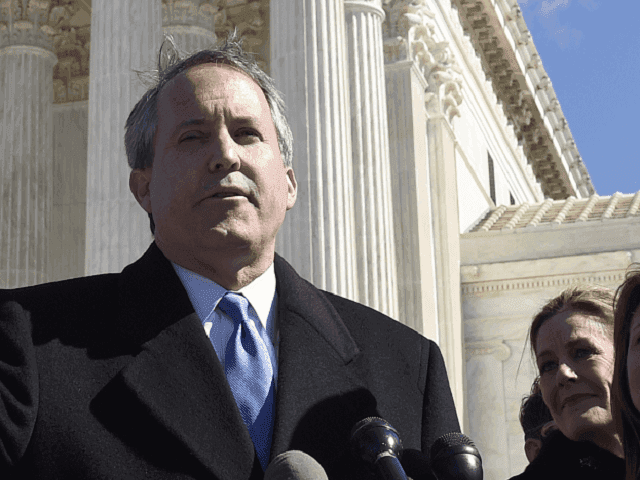WASHINGTON—On April 29, the Supreme Court issued an unusual order denying the relief requested by challengers to Texas’s voter-ID law, but also sending a signal to the appeals court currently examining the law, informing the lower court that it only has until July 20 to make a final decision, so that the Supreme Court would have time to act if necessary before the 2016 election.
In 2011, Texas enacted SB 14, a voter-ID law to ensure the integrity of the ballot box by guaranteeing that everyone casting a ballot in the Lone Star State is the person that they claim to be. The Supreme Court upheld voter-ID laws in its 2008 case Crawford v. Marion County Election Board, which was a challenge to a similar law in Indiana.
A stridently liberal federal district judge appointed by President Barack Obama held that Texas’s SB 14 violated a host of constitutional and federal requirements. Then as Breitbart Texas reported last year, a three-judge panel of the U.S. Court of Appeals for the Fifth Circuit reversed the district court on most of the issues, but agreed that the way SB 14 is currently written, it violates Section 2 of the Voting Rights Act of 1965.
In a rare move, the full Fifth Circuit voted to rehear the case en banc, meaning that the panel decision from the appeals court was vacated (meaning taken off the books), and all 15 judges currently on the court will rehear the case together, then issue a new decision.
The full en banc court will hear the appeal on May 24. In the meantime, the court issued a stay of the district court’s decision—effectively putting that decision on ice and allowing Texas authorities to continue implementing and following SB 14 while this litigation continues.
The challengers then filed a petition at the U.S. Supreme Court with Justice Clarence Thomas, asking him as the “circuit justice” who supervises the Fifth Circuit to lift the appellate court’s stay, so that Texas would be required to abide by the district court’s decision that SB 14 is unconstitutional while the case continues to be fought out on appeal. Breitbart Texas reported in detail on the arguments by Texas Attorney General Ken Paxton and Texas Solicitor General Scott Keller as to why Justice Thomas should reject the request.
Justice Thomas referred that petition to all eight justices on the Court for a vote. On April 29, the Court unanimously sided with Paxton, at least for the time being.
Specifically, the Court denied the challengers’ request to lift the Fifth Circuit’s stay of the district court’s decision, so the Fifth Circuit’s stay endures. However, the Court also said that it was mindful of the upcoming 2016 election, implying that it is important for this case to be finally resolved before November.
Consequently, the Supreme Court ruled that either party unhappy with the current status of the case (the challengers or the State of Texas) can return to the Supreme Court seeking additional relief if by “July 20, 2016, the Court of Appeals has neither issued an opinion on the merits of the case nor issued an order vacating or modifying the current stay order.”
In other words, the Fifth Circuit has less than 90 days to make up its mind on this case, then the Supreme Court will decide if additional action is warranted.
The High Court appears evenly divided 4-4 on voter-ID laws after the death of Justice Antonin Scalia, who always ruled in favor of such ballot-box protection laws. If a majority of the justices cannot agree on the issue, then the eventual 15-judge decision from the Fifth Circuit will be the final word on SB 14.
The case is Veasey v. Abbott, No. 14-41127 at the Fifth Circuit.
Ken Klukowski is legal editor for Breitbart News. Follow him on Twitter @kenklukowski.

COMMENTS
Please let us know if you're having issues with commenting.